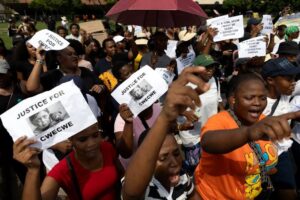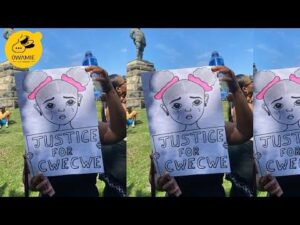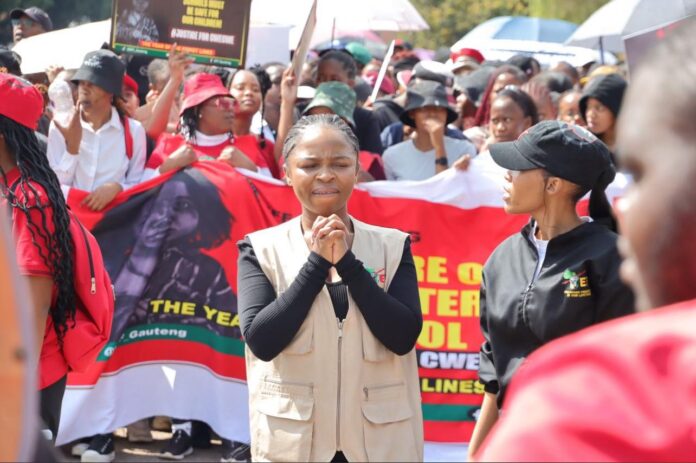South Africa is reeling from the horrific attack on seven-year-old Cwecwe, a tragedy that has shaken the nation to its core. The young girl was assaulted while waiting for transport, a moment that should have been routine but instead turned into every parent’s worst nightmare. Initial suspicion fell on the school’s caretaker, principal, and driver.
While the caretaker and driver have since been cleared after cooperating fully with authorities, shocking allegations now suggest that the principal is refusing to provide DNA samples. Even more disturbing, reports indicate that the child may have been drugged into unconsciousness before being assaulted. The principal has also allegedly attempted to silence Cwecwe’s mother, shifting blame onto her instead of aiding the investigation.
It is deeply troubling that, rather than ensuring justice for the young girl, the school appears more focused on protecting its reputation. This is an unacceptable betrayal of trust. Schools should be sanctuaries of safety and learning, not places where children are left vulnerable to harm.
The outrage over Cwecwe’s case has fueled a nationwide march, but her story is not an isolated incident. A parliamentary response by Education MEC Fundile Gade has revealed that, in the past year alone, twenty-two educators in the Eastern Cape have been suspended for serious misconduct involving learners.
Also, read: All You Need to Know About Alma Asinobi’s Historic Seven-Continent Journey in 71 Hours
Among them, five cases involved sexual assault, three involved rape, and three were linked to inappropriate relationships with students. While some teachers have been dismissed, many cases remain unresolved due to delayed disciplinary hearings and ongoing investigations.
These numbers are a damning indictment of a system that reacts instead of prevents, that moves sluggishly when it should act with urgency. Schools must never protect perpetrators or prioritize their reputations over student safety. Every child deserves to learn in an environment free from fear.
Minister Siviwe Gwarube’s call for legislative reform, requiring all adults working with children to be vetted against the National Sexual Offenders Register, is a necessary step. However, policy changes alone are not enough. Those who enable abuse—whether by covering it up, delaying justice, or silencing victims—must face real consequences. The culture of impunity must end.
As South Africans take to the streets today, their message is clear: Enough is enough. Children must be protected, and those responsible for their harm—whether through direct abuse or systemic negligence—must be held accountable.
The march today is not just about outrage; it is about demanding immediate and lasting change. It is about ensuring that no other child suffers the same fate, that no other family is left with unanswered questions, and that those in positions of power prioritize the well-being of students over everything else.
Cwecwe deserves justice. Every child does. And South Africans are making it clear that they will not stop until that justice is served.

